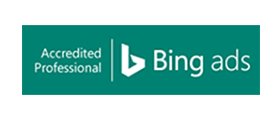The digital marketing space grows ever more complicated. For small and local businesses without the budgets to experiment and make mistakes, knowing where to start can be highly problematic. Organic options like Search Engine Optimisation (SEO) can be tempting, but in many cases, SEO is a longer-term tactic and online advertising is a more predictable place to start a digital marketing campaign.
This is the first of a series of articles where we will look at the options for advertising your business online. We will look at strategy, account setup, campaign setup, measuring your results, and how to optimise your campaigns to improve results.
Please sign up to our newsletter or follow us on social media for future updates. And, if you have any burning questions, please feel free to drop me an email – we always love to talk digital marketing.
Online Advertising – A Little Background
Online advertising differs from traditional advertising in magazines and newspapers in that typically, it is more effective. Rather than simply broadcasting a message and hoping some of the recipients are interested, we can more accurately target messages to those who are interested. If you are an emergency plumber then we only show our ads to people who are searching for “emergency plumbers” and are in the location you serve.
This efficiency in the delivery mechanism allows the platform holders (Google, Facebook, etc) to generate more returns overall and for the advertiser to pay a lower price per lead. ROI increases. Everyone is happy. In theory at least.
Online Advertising Opportunities
The main platforms for advertising your business online are search engines, social media platforms and display advertising, which shows text or graphical adverts on relevant websites. The concept is largely the same in that you are targeting people who are looking for a specific piece of information.
Search Ads
This is often the easiest concept for new advertisers, which in turn can make it somewhat more competitive. If a user searches for “digital marketing agency” and they are local, then we want them to know about us. Strategically simple. Very powerful.
With search ads, your adverts are only shown when a user searches for something that is relevant to your business. This is in contrast to traditional advertising where your adverts are shown in a newspaper and you are just hoping that a certain percentage of the audience is interested.
Typically search-based campaigns are the basis of your online advertising efforts. Search is typically the easiest to implement and sees a better overall return on investment than display or social campaigns. There are exceptions to this rule but most online advertising campaigns should start here.
Display Ads
Display advertising relates to adverts shown on third party websites as users search and browse the web. Primarily these adverts appear on websites, but they can also appear over videos and within mobile apps (all of which is configurable).
Display ads are far closer to traditional advertising in that the user is unlikely to be directly looking for what it is you offer. Targeting allows for your adverts to be shown on relevant content, yet the user is not directly looking for what you offer in that moment the way that they are on a search engine.
As such, the messaging you use and the position of these adverts in your overall marketing funnel is likely to be different. Typically, we are trying to educate a customer, and raise brand and problem awareness. Shine a light on the solution you offer. And where possible, drive initial clicks to the website so users can be further targeted with remarketing strategies.
Display can also be used to drive engagement with content, to drive soft conversions like social and email sign-ups. Typically, this works best with an incentive in the form of some content or other value item that is exchanged in return for the user’s details and permission to continue helping (marketing) them.
Display ads can be a little tougher to get working, yet can deliver at a lower cost than search ads when they are well targeted.
Social Ads
The major social media platforms all have advertising options. Facebook allows for detailed targeting by a user’s interests and demographics. LinkedIn allows you to target by job type, company, and demographic. Twitter allows targeting by interests, who an account follows, and demographics.
Each platform allows for you to drive brand awareness, lead generation and even sales. Yet social differs again in the mindset of the user. We have to consider the user’s mindset whilst on the platform. We have all seen people idly scrolling down their Facebook feed looking for something interesting. The trick is to be that something interesting.
Often the most powerful social campaigns are built around content and sit firmly at the top-end of your marketing funnel. Promote content to qualify a user’s interest. Then build on that initial qualification and drive users to follow or sign up to your email list. Then you can slowly nurture these users towards a sale.
A key consideration here is that social ads are targeted around a set of people based on interests. As such, your ads will show to those same people on a regular basis. This is in contrast to search ads where the need dictates the search so the people seeing the ads changes regularly. To combat this, social ads need to be frequently updated and changed to ensure you continue to engage that group of users.
Remarketing
Remarketing allows you to target people who have previously visited your website. As such, it allows you to build upon an initial point of contact, build brand awareness, and nurture users towards a desirable action (email sign-up, social sign-up, lead, sale etc).
Remarketing can be done on search results, on the display network, or on social networks (or all the above). You can also use remarketing lists and combine them with other targeting methods to finely tune who sees your adverts and when they see them.
You can also use logical rules to help group users and create a staged approach to your marketing efforts. Users can be grouped by having visited a number of pages or spent a certain amount of time on your site.
As an example, you could have the following remarketing campaign stages:
- User has visited site and is shown ad promoting a white paper
- User has downloaded your white paper and is now shown ad for special offer
- User has purchased via your special offer and is now shown ad for follow-on sale
Remarketing is a powerful targeting option that allows you to create smart campaigns to nurture, upsell and retain customers.
Content and Landing Pages
We can’t talk about online advertising without of course touching on your content and landing pages. Content is far more than just your blog posts. Your service pages, case studies, testimonials, product comparisons, white papers, how-to guides and everything on your site is all content.
Content is central to taking those website visitors and converting them to customers. Your content is what takes that prospect and encourages them to become a customer. Your advertising can be finely tuned but if your content is not equally well tuned then your efforts will fail.
When it comes to landing page content, ideally we want a consistent approach from what a user searches for (or the ad targeting) to the advert that they see to the landing page and the call to action. If everything lines up your results will be far greater.
Inspect and Adapt
The key here is to ensure you are spending time carefully measuring the results and refining your approach as you go. Inspect and adapt. Ads and targeting need tweaking. What worked? What did not work so well? What can we improve? If you don’t have the time to measure and improve your campaigns on a regular basis then you will need outside help to ensure success.
Commitment is needed in the early days to slowly but surely create a platform that delivers leads at a price that makes sense for your business.
Getting Started
Hopefully, this gives you a high-level overview of the options for advertising your business online. If you have any questions or want to gain some SEO tips, please drop me a message via the contact form or follow us on Facebook, Twitter or LinkedIn.







